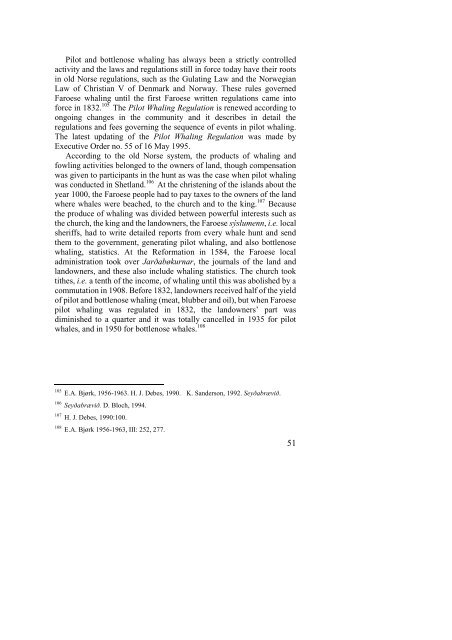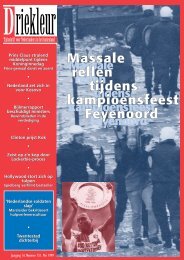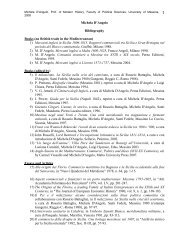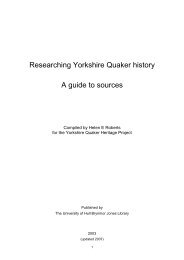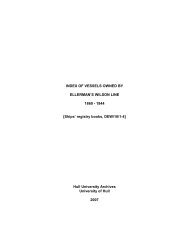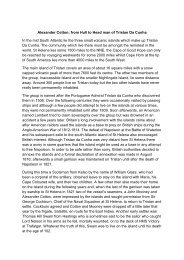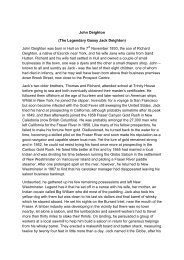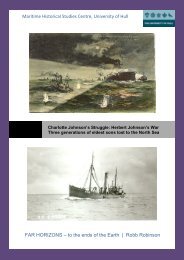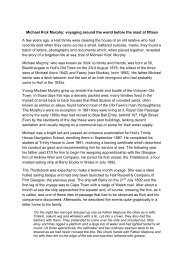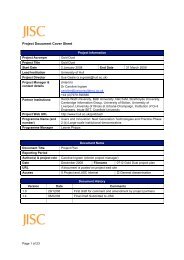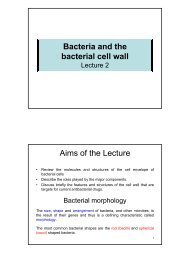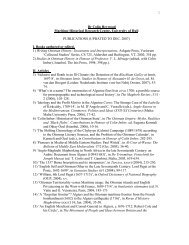The North Atlantic Fisheries, 1100-1976 - University of Hull
The North Atlantic Fisheries, 1100-1976 - University of Hull
The North Atlantic Fisheries, 1100-1976 - University of Hull
Create successful ePaper yourself
Turn your PDF publications into a flip-book with our unique Google optimized e-Paper software.
Pilot and bottlenose whaling has always been a strictly controlled<br />
activity and the laws and regulations still in force today have their roots<br />
in old Norse regulations, such as the Gulating Law and the Norwegian<br />
Law <strong>of</strong> Christian V <strong>of</strong> Denmark and Norway. <strong>The</strong>se rules governed<br />
Faroese whaling until the first Faroese written regulations came into<br />
force in 1832. 105 <strong>The</strong> Pilot Whaling Regulation is renewed according to<br />
ongoing changes in the community and it describes in detail the<br />
regulations and fees governing the sequence <strong>of</strong> events in pilot whaling.<br />
<strong>The</strong> latest updating <strong>of</strong> the Pilot Whaling Regulation was made by<br />
Executive Order no. 55 <strong>of</strong> 16 May 1995.<br />
According to the old Norse system, the products <strong>of</strong> whaling and<br />
fowling activities belonged to the owners <strong>of</strong> land, though compensation<br />
was given to participants in the hunt as was the case when pilot whaling<br />
was conducted in Shetland. 106 At the christening <strong>of</strong> the islands about the<br />
year 1000, the Faroese people had to pay taxes to the owners <strong>of</strong> the land<br />
where whales were beached, to the church and to the king. 107 Because<br />
the produce <strong>of</strong> whaling was divided between powerful interests such as<br />
the church, the king and the landowners, the Faroese sýslumenn, i.e. local<br />
sheriffs, had to write detailed reports from every whale hunt and send<br />
them to the government, generating pilot whaling, and also bottlenose<br />
whaling, statistics. At the Reformation in 1584, the Faroese local<br />
administration took over Jarðabøkurnar, the journals <strong>of</strong> the land and<br />
landowners, and these also include whaling statistics. <strong>The</strong> church took<br />
tithes, i.e. a tenth <strong>of</strong> the income, <strong>of</strong> whaling until this was abolished by a<br />
commutation in 1908. Before 1832, landowners received half <strong>of</strong> the yield<br />
<strong>of</strong> pilot and bottlenose whaling (meat, blubber and oil), but when Faroese<br />
pilot whaling was regulated in 1832, the landowners’ part was<br />
diminished to a quarter and it was totally cancelled in 1935 for pilot<br />
whales, and in 1950 for bottlenose whales. 108<br />
105 E.A. Bjørk, 1956-1963. H. J. Debes, 1990. K. Sanderson, 1992. Seyðabrævið.<br />
106 Seyðabrævið. D. Bloch, 1994.<br />
107 H. J. Debes, 1990:100.<br />
108 E.A. Bjørk 1956-1963, III: 252, 277.<br />
51


